What Are the Health Benefits of Lotus Seeds?
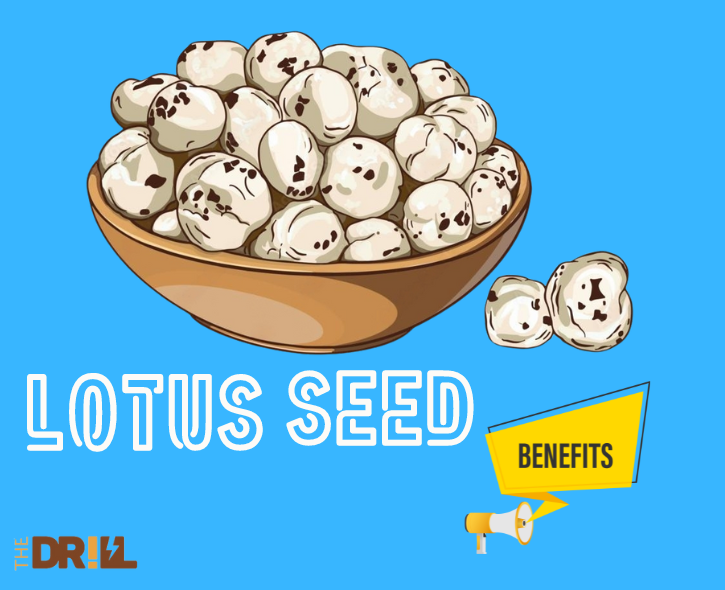
Share
Lotus seeds, also known as fox nuts or makhana, come from the lotus plant (Nelumbo nucifera). These nutrient-dense seeds have been a staple in Asian cuisine for centuries, especially in India and China, where they are widely used in traditional medicine and culinary dishes. Beyond their delicious taste, lotus seeds are packed with essential nutrients and provide a variety of health benefits. In this blog, we will explore the nutritional profile of lotus seeds, their key health benefits, how to incorporate them into your diet, and some important precautions.
Nutritional Profile of Lotus Seeds
Lotus seeds are not only delicious—they are also highly nutritious. Here’s a breakdown of the nutrients they provide per 100 grams:
- Calories: 347 kcal
- Protein: 15.5 g
- Carbohydrates: 64.3 g
- Dietary Fiber: 6 g
- Fat: 2 g
- Vitamins: Vitamin B1 (Thiamine), Vitamin B2 (Riboflavin), Vitamin B3 (Niacin), Vitamin C
- Minerals: Calcium, Iron, Magnesium, Potassium, Phosphorus
This impressive nutrient profile makes lotus seeds an excellent choice for a healthy, balanced diet. They are high in protein and fiber while containing minimal fat, making them ideal for overall health and well-being.
Top 9 Health Benefits of Lotus Seeds
1. Rich in Antioxidants
Lotus seeds are packed with powerful antioxidants that help neutralize free radicals and reduce oxidative stress. This can lower the risk of chronic diseases such as heart disease and cancer, while also promoting overall health. Antioxidants play a crucial role in slowing down the aging process, keeping your skin youthful and vibrant.
2. Promote Heart Health
Due to their low-fat content and high fiber, lotus seeds support heart health by helping to manage cholesterol levels. They may reduce bad cholesterol (LDL) and increase good cholesterol (HDL), ultimately lowering the risk of heart disease. The potassium content in lotus seeds also helps regulate blood pressure.
3. Aid in Digestion
The high dietary fiber content in makhana supports healthy digestion and helps prevent constipation. Fiber adds bulk to stool, improving regular bowel movements and supporting overall gut health.
4. Support Weight Management
If you’re looking for a low-calorie snack that helps you stay full, lotus seeds are a great choice. They are low in calories, high in protein, and packed with fiber, which helps you feel fuller for longer, making them perfect for weight management. They can reduce cravings and prevent overeating.
5. Enhance Sleep Quality
In traditional Ayurvedic medicine, lotus seeds are used to improve sleep and reduce stress. They contain calming compounds that may enhance sleep quality, making them a natural remedy for insomnia and anxiety.
6. Boost Skin Health
The antioxidants, vitamins, and anti-inflammatory properties found in lotus seeds help boost skin health. They support skin elasticity, reduce wrinkles, and contribute to a glowing complexion. Regular consumption may also alleviate certain skin conditions.
7. Improve Kidney Function
Lotus seeds possess natural diuretic properties that help detoxify the kidneys, assisting in flushing out toxins from the body and promoting overall kidney function. This is essential for maintaining healthy kidneys.
8. Support Bone Health
Rich in essential minerals like calcium and magnesium, lotus seeds contribute to strong bones and teeth. Regular consumption can help prevent bone-related diseases, particularly in older adults.
9. Help Manage Diabetes
With a low glycemic index, lotus seeds are a suitable option for those with diabetes. They can help regulate blood sugar levels and improve insulin sensitivity, supporting better metabolic health for diabetics.
How to Incorporate Lotus Seeds into Your Diet
Adding lotus seeds to your diet is simple and versatile. Here are some delicious ways to enjoy them:
- Roasted Snacks: Roast lotus seeds for a crunchy, healthy snack. Season them with salt, spices, or herbs to enhance the flavor.
- Soups and Curries: Add them to soups and curries for additional texture and nutrition. They absorb flavors well, making them a great addition to savory dishes.
- Salads: Toss roasted lotus seeds into salads for a crunchy topping that adds both flavor and nutrients.
- Desserts: Use lotus seeds in desserts like kheer (a rice pudding) or as a topping for yogurt and smoothies.
- Smoothies: Blend lotus seeds into your smoothies for an extra boost of protein and fiber.
Precautions
While lotus seeds are generally safe for most people, it’s important to consume them in moderation. Overconsumption may cause digestive discomfort. If you have allergies to nuts or seeds, consult a healthcare provider before adding lotus seeds to your diet.
Conclusion
Lotus seeds are a true nutritional powerhouse, offering numerous health benefits—from promoting heart health and aiding digestion to supporting weight management and enhancing skin health. By incorporating these versatile seeds into your meals and snacks, you can enjoy their delicious taste while benefiting from their rich nutrient content. So, why not give lotus seeds a try and experience these amazing health benefits for yourself? For more insights into healthy ingredients, check out our blog on the benefits of ragi
Explore More
-

What is Maida and Why is it Bad?
...
-

How Do You Choose the Right Products for Your Health?
...
-

Why Gyms Won’t Save You from Heart Disease in Your 30s: The Hard Truth You Need to Hear
...
-

Caffeine and You: Finding the Sweet Spot for Your Day
...
-

Why Potato Chips Are Addictive: The Science Behind the Crunch
...
-

Why Protein Deficiency in India Is More Common Than You Think (And How to Fix It)
...
-

Health Benefits of Sea Buckthorn: The Superberry You Need in Your Diet
...
-

Cold Weather Hacks: How to Stay Healthy During a Mountain Trip
...
-

Top 10 Anti-Aging Foods to Keep You Young and Glowing – Bollywood Style
...
-

PUFA vs. MUFA: Which is Healthier?
...
-
Introducing Drill Lens: Your AI-Powered Food Rating Tool
...
-
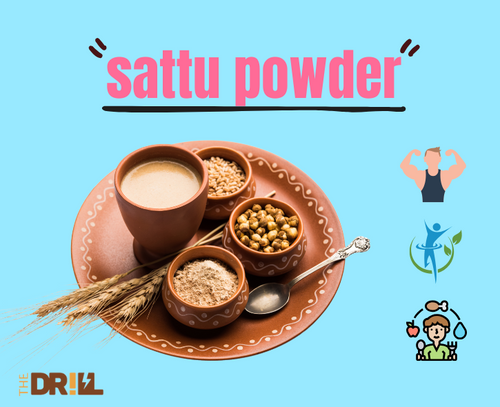
Benefits of drinking sattu everyday
...
-

5 Surprising Health Benefits of Teff Grain for Indian Diets
...
-

Can Taurine Cause Side Effects? Here’s What You Need to Know
...
-
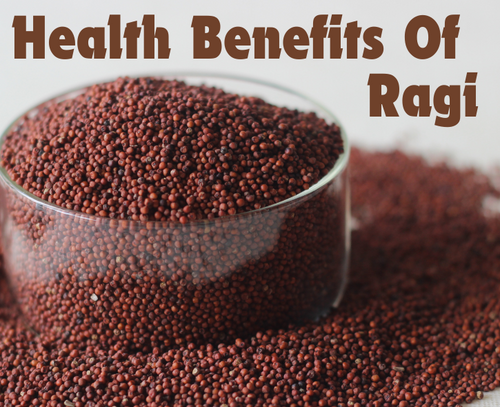
Health Benefits of Ragi for Vegetarians
...
-

How to Use Jackfruit as a Meat Substitute in Indian Cuisine
...
-

Is Defatted Soya Good for Muscle Gain?
...
-
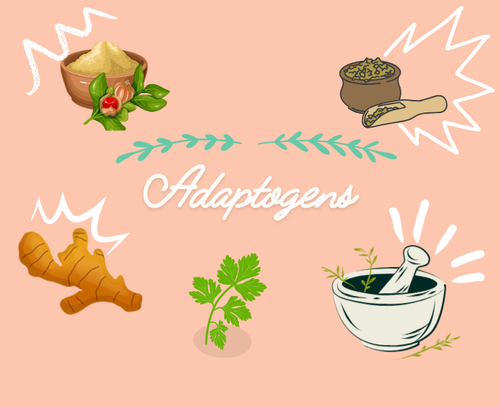
Beginner's Guide to Adaptogens
...
-

The Impact of Glycemic Index on Cravings
...
-

What is Amino Spiking in Whey Protein? A Complete Guide
...
-
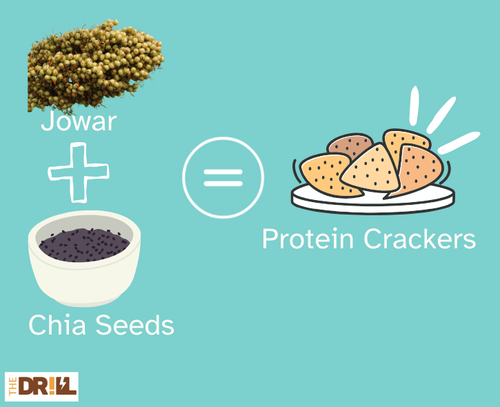
Jowar and Chia Seed Protein Crackers Recipe: A Gluten-Free, High-Protein Snack
...
-
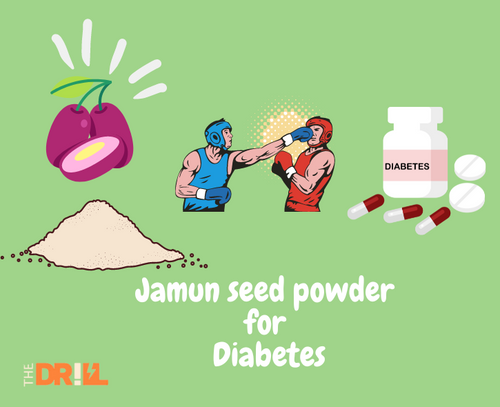
Jamun Seed Powder for Diabetes: Understanding the Benefits and How to Use It
...
-
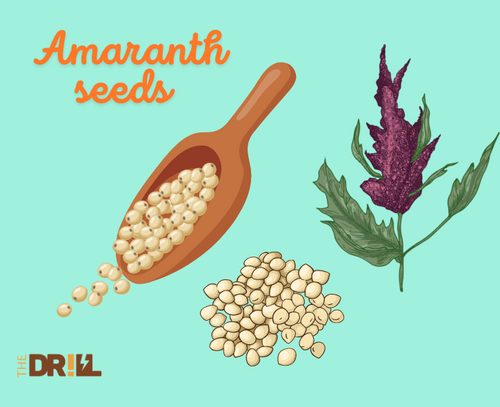
Amaranth Superfood Benefits: Why You Should Add This Ancient Grain to Your Diet
...
-

What Is Fructooligosaccharides (FOS) and Why Should You Care?
...
-
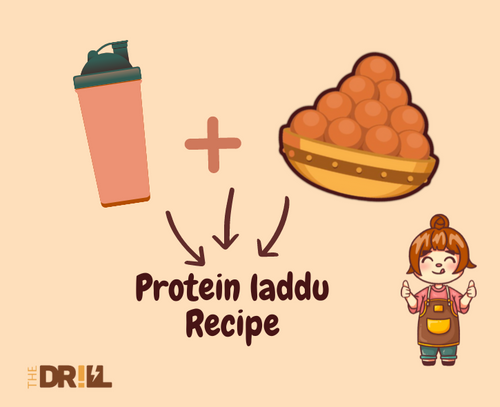
How to Make Protein Laddu at Home: A Nutritious Indian Snack
...
























